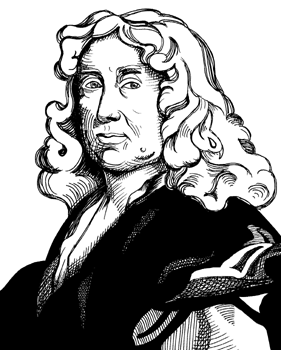 |
 |
|||
|
|
William
was a member of the Chiffinch family of Staplehurst in Kent and younger
brother of Thomas Chiffinch, to most of whose offices he succeeded in 1668,
as Page of his Majesty’s Bed-Chamber and Keeper of the King’s Private
Closet. This made him the closest of all King Charles II’s servants and
his influence at court is said to have been incalculable. His
own apartments in Whitehall were immediately adjoining the King’s and were
a convenient place for secret meetings with the monarch, especially during
troubled times of the Popish Plot. They were also a discreet access point to
the King’s closet. In an undated letter to Sir John Shaw, Charles II
writes, “I have had so much business these two days past as I could not
get time to speak with your man that is come over, but now if you will send
him to Will Chifines at seven this evening, he will bring him privately
into my closet”. On other occasions, Chiffinch’s rooms were used as
Charles’ secret escape route out of the palace, down to the river and to
pleasures elsewhere. In Holyport,
only a stone’s throw from Windsor
Castle, Chiffinch rented Old Philibert’s Manor as a secret
rendezvous for King Charles and his many mistresses. It is said that Nell
Gwynne was in semi-permanent residence there for some time. Anthony
Wood mentions ‘Cheffing’ as holding the greatest trust in harbouring
such royal “supper-companions” and he is similarly lampooned in the printed
libels of his day: It
happen’d, in the twilight of the day, As
a useful go-between and lively companion, William was known to everybody
about the Royal Court. Pepys frequently mentions him. The diarist was taken,
with Sir John Menzies, to see the “great variety of brave pictures,” a
private art gallery in the king’s closet, with Chiffinch acting as
tour-guide. While they sometimes held backstairs revels together, with wine
and pickled herring or cold chicken. Proof of Chiffinch’s activity and
influence is found in more than fifty entries in the secret service lists of
often considerable sums of money paid to him between 1679 – when he
received £300
– and 1688 – when he received £500. The purchase of wines, presents
of hawks, payments for flowers, red coats for falconers, paving Windsor,
curious clocks, dog-kennels, “pump work and water carriage in Hyde
Park,” provisions or “bounty” totalling £13,792
went through his hands. Of this, £2,300
was marked for his majesty’s own private use. Chiffinch was also the
receiver of the secret pensions paid by the court of Louis XIV to the King. However,
Chiffinch was a time-server and libertine, wasteful, unscrupulous, open to
bribery and flattery, ingratiating himself into the confidence of courtiers
and Royal mistresses alike. He delighted in intrigue of every kind except
political plots, though even with these he sometimes meddled in, though
seldom skilfully. In 1666, he assisted the Duchess of Cleveland in her plan
to cause King Charles II to surprise his latest favourite, ‘La Belle
Stuart’ in company of the Duke of Richmond. Above all predecessors, he
carried the abuse of backstairs influence to scientific perfection. There
are many disdainful contemporary allusions to ‘Chiffinch’
(without initial) and the smuggling into the palace of objectionable
persons or his wasting of money. Chiffinch
was at the famous loyal feast of the apprentices at Saddlers’ Hall, on 4th
August 1681, and, nearly four years later, attended the King upon his
deathbed, bringing to him a certain Father Huddleston who converted him to
Catholicism just before the end. He continued in favour under James II and
it was to his house in Whitehall, that the Duke of Monmouth was brought,
after his flight from the Battle of Sedgmoor in 1685. He stayed there with
Lord Grey until they were taken to the Tower of London. When not in London,
his chief residence was now Philibert’s and he served the nearby town of Windsor
as MP from 1685 to 1687. Chiffinch did not, however, survive King James’
downfall in 1688 and he retired to the obscurity of East Berkshire. He died
at Philibert’s in July 1691, having married Barbara Nunn, by whom he only
had one daughter, also named Barbara, the wife of Edward Villiers, 1st Earl
of Jersey. Edited from Leslie Stephen's 'Dictionary of National Biography' (1887).
|
|||
| © Nash Ford Publishing 2009. All Rights Reserved. | ||||



 William Chiffinch (1602-1691)
William Chiffinch (1602-1691)